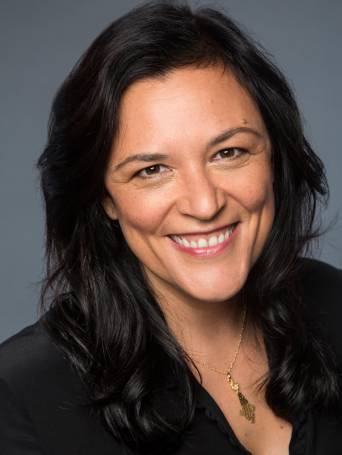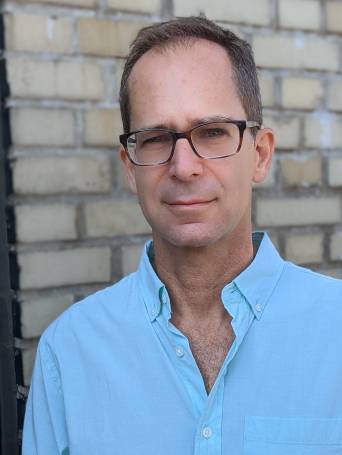MUP - International Development Planning Specialization
When “the greater good” has global proportions, how do you balance the needs and values of all the people involved? We’ll help you answer that. Whether you’re interested in planning for the multinational cities of tomorrow or the developing economies of today, we’ll prepare you to juggle the complexities of work with and across governments, NGOs, and international development agencies—and anything else the world ends up throwing your way.
PROGRAM REQUIREMENTS
Below is an overview of the required coursework. For detailed information, view the program checksheet
degree core REQUIRements
Students must complete the following courses:
specialization requirements
Students must complete the following courses:
ELECTIVEs
Focus Areas
Focus Areas are optional groupings of courses to help you choose your electives. You can go deeper in your degree program and develop more advanced skills by choosing electives within the urban planning focus areas. To pursue depth in a focus area we suggest completing 9 credits. To pursue breadth, you may also choose electives across focus areas.
Resilience Planning
Whether it is air pollution, deforestation or greenhouse gas effects, as urban regions grow, they continue to have dramatic effects on the global environment. The world's cities will also be dramatically impacted by the very changes that they induce, and these effects will be most felt by already vulnerable populations. It is imperative to the survival of humans society on earth that we understand how to plan cities and regions with the natural environment in mind. What can you do? This focus area will prepare you to make meaningful contributions to the world's most pressing environmental challenges through urban planning and policy.
URPL-GP.2625, Environmental Infrastructure is a key course in this area (recommended to build expertise).
Global Perspectives
The majority of the world’s population now lives in urban areas though rapidly increasing rates of urbanization are most expected in countries and regions of the world least able to prepare for—much less manage—this growth in the face of climate change, changing geopolitical dynamics, and limited resources. This focus area includes courses that cover the institutional, political and economic challenges of planning in least-developed countries and also topics such as international aid effectiveness, local government finance, water management, project appraisal, and more.
PADM-GP.2214, Constructing National Development Strategies and PADM-GP.2245, Financing Local Government in Developing Countries are key courses in this area (recommended to build expertise).
Housing & Economic Development
Learn to plan and build thriving, socially- and economically-diverse communities. The courses in this focus area cover the key elements of a healthy community ecosystem: from the economic theories behind real estate markets to the social theories underlying the importance of community organizations. The focus area also builds practical skills, including how to analyze current planning and policy issues and create new ones.
URPL-GP.4636/38, Housing Policy I and II; URPL-GP.2639, Real Estate Finance; and URPL-GP. 2452, Public-Private Partnerships are key courses in this area (recommended to build expertise).
Transportation & Infrastructure
As the first point of contact in almost every citizen’s journey to an opportunity—be it healthcare, employment, or education—transportation sits at the heart of all major city planning decisions. This focus area emphasizes not only mobility—how quickly and efficiently transportation systems (streets, expressways, subways, buses, bike lanes, parking, ride-hailing) could move people or goods around, but also accessibility—namely the spatial distribution of all opportunities available. It will prepare you to be a new generation of transportation planners—technically savvy, policy sensitive, and socially responsible.
URPL-GP.2631, Transportation, Land Use, and Urban Form, and URPL-GP.2641, Urban Transportation Planning are key courses in this area (recommended to build expertise).
Urban Analytics
Cities are becoming smarter: they’re using data to optimize services, infrastructure operation, and urban planning. Government agencies, nonprofits, consulting firms, and startups all recognize the importance of leveraging data to create effective public policy and urban plans but grapple with how to analyze large, complex datasets and apply the findings in urban planning environments. This focus area includes courses to help you understand data-driven approaches to tackle today’s most pressing urban challenges.
PADM-GP.2505, Advanced Data Analytics and Evidence Building; URPL-GP.2618, Geographic Information Systems; URPL-GP.4650, Advanced GIS: Interactive Web Mapping are key courses in this area (recommended to build expertise).
School-wide Focus Areas
In addition to the courses in the urban planning-related elective focus areas above, to gain a breadth of knowledge and skills you may also wish to choose electives from across course offerings, including from the school-wide focus areas. Relevant school-wide focus areas for you to consider as a Urban Planning student include, Communication Skills; Inequality, Race, and Poverty; Social Justice and Democracy; Program Evaluation; and more.
capstone
The Capstone Program, a year-long consulting or research project, puts you out in the world resolving a problem or conducting an analysis for a client organization.
Students must complete the following courses:
CAP-GP.3226 & 3227 Capstone: Advanced Projects in International Development Policy and Management I & II
or
CAP-GP 3148 & 3149 Capstone: Advanced Research Projects in Quantitative Analysis I & II
Authoritative curriculum information can be found exclusively in the University Bulletin. All other content, including this web-page, is for informational purposes only. You can find the curriculum for this program on this page of the Bulletin.


